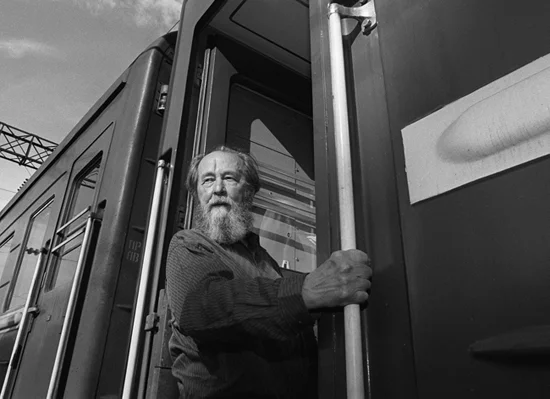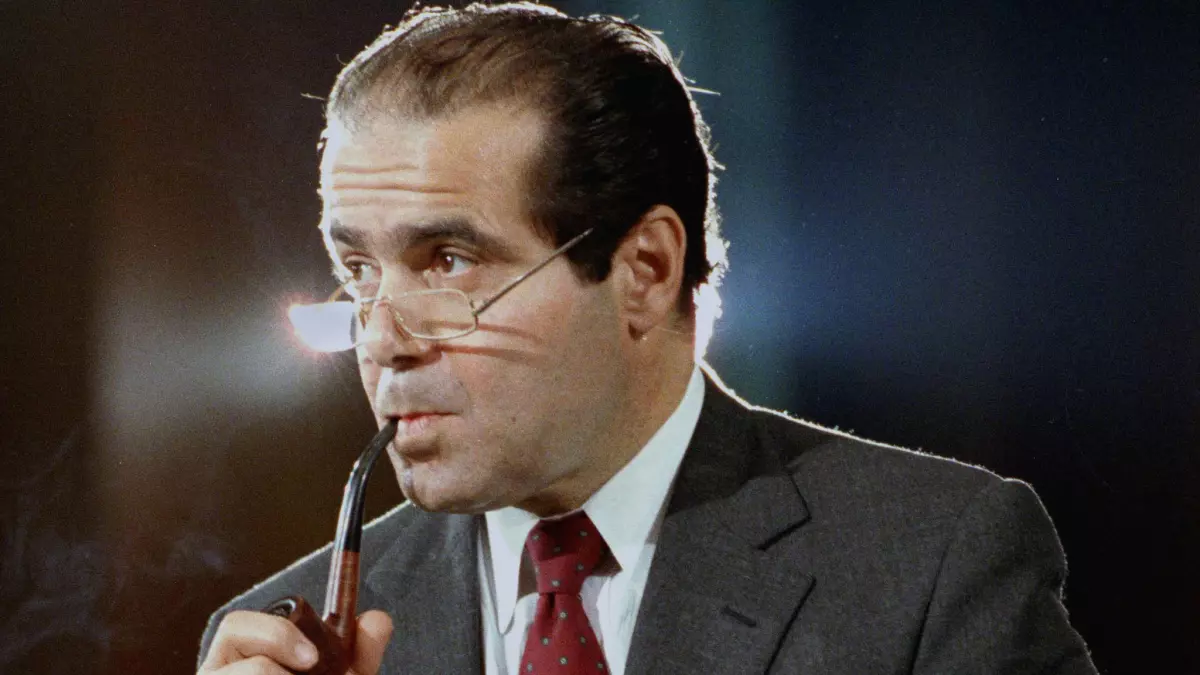
Jefferson's Complex Legacy on Slavery and Race
Stevens successfully refutes the argument that Jefferson didn’t really care about ending slavery and shows that that desire persisted till the end of his life.
Cara Rogers Stevens’ Thomas Jefferson and the Fight Against Slavery is a response to books and essays, academic and popular, which seek to depict Jefferson’s commitment to anti-slavery as at best halfhearted. On the contrary, Stevens shows Jefferson was serious about the cause throughout his life. This book’s purpose, in other words, is related to the politics of memory; it’s an effort to continue managing the Jefferson image in the American mind, a contribution to the sublimated political debates historians have about the founding. It weighs in strongly with extensive evidence for Jefferson.
The writing is generally clear, although the book could have benefited from a thorough edit. In several places, it uses the same bit of evidence twice, setting up the quotes in a similar way, and repeatedly uses phrases like “as we shall see” and “as we have seen,” a rhetorical tick that academic reviewers of my own work have drilled out of me. I had trouble following some of Stevens’ terminology. It is not clear why she chooses to use terms like “liberal” and “progressive.” Both terms are anachronistically applied, more so the latter, so the historian of ideas should be careful. Jefferson himself preferred the term “republican.” Or, to cite another example of loose language, Stevens writes that Thomas Roderick Dew, a Professor at William and Mary in the 1830s “dismissed Jefferson’s philosophies.” What that tells us is that this book is not a history of ideas or even an intellectual history. It is, instead, a valuable contribution to our understanding of the scope of Jefferson’s commitment to anti-slavery, a commitment evident in his desire to raise up the next generation of Virginia’s leaders to carry on where he left off. Leaving slavery to the next generation was not merely a way of keeping his hands clean. Stevens demonstrates that Jefferson, with limited success, spent time and energy trying to raise up such men.
In a sense, the book picks up a story well told by, among others, William Freehling in his classic 1972 American Historical Review article on “The Founding Fathers and Slavery.” By 1972, Freehling found, the overcorrection had already begun. Jefferson and the other founders had gone from heroes to villains. Focusing on Jefferson, he demonstrated how much they, in general, and Jefferson in particular, contributed to creating an America that ultimately ended slavery — via the Northwest Ordinance, the abolition of the slave trade, and other similar actions. Stevens barely mentions those actions. Her work focuses mostly on Jefferson’s fight against slavery in Virginia, and that fight focused on raising anti-slavery political sons. While others have contended that Jefferson essentially gave up the fight in the 1780s, and some even claim he was never serious about it even then, Stevens demonstrates that Jefferson was, in fact, dedicated to the cause.
The heart of the book is Jefferson’s Notes on the State of Virginia. Building on the pioneering work of Douglas Wilson, Stevens describes the writing and revising process Jefferson undertook. Although Stevens takes detours to other subjects, such as the map of Virginia in the book that was so important to Jefferson, the main focus is on the section on race in Query XIV. The heart of the editing process Stevens writes about is related to Jefferson’s infamous characterization of the racial characteristics of blacks as inferior to whites in intelligence and other things. Like Wilson, Stevens highlights the part of Charles Thomson’s critique of the pre-publication manuscript that focused on Jefferson’s scientific racism. Thomson recognized that Jefferson’s arguments would, inevitably, not help the anti-slavery cause. (The truth of that analysis was revealed not long after the official publication in 1787, when Congressman Smith of South Carolina quoted Query XIV as part of his argument against the Quaker emancipationist petitions in Congress in March 1790). Jefferson left most of his racial comments in, although, as Wilson notes, he did add a line noting that his conclusion that there are innate racial differences in intelligence and other features was only a conjecture. Stevens ought to have noted that she is quoting some of the exact same passages Wilson quoted about Cato from Thomson’s critique.
The key to Stevens' apologia for Jefferson’s publication of Query XIV is the argument from political and Enlightenment scientific culture. The book situates Jefferson’s Notes within a social and cultural context. For example, she notes that racism was hardly new, pointing to James Sweet’s work demonstrating the role the Arab slave trade, and Arab/ Muslim enslavement of Africans, contributed to the association of Africans with slavery and with inferiority to others. Yet adding the modern scientific method did mark a change. And, as Stevens argues, Jefferson was intervening in ongoing discussions in Virginia and in France.
In Virginia, efforts to block movement against slavery had begun, and Stevens argues that Jefferson believed that a softer line would be more likely to gain traction. In that, he wasn’t entirely wrong. With the push to legalize emancipation came the backlash. Stevens points to the active discussion of the question in Virginia’s newspapers. On the other side of the water, the scientific discussion of race was also common, and Jefferson was speaking in the language of Enlightened science. In that connection, Stevens probably ought to have mentioned that in the eighteenth Century, many Philosophes connected progress against tyranny with progress against the Bible, and embraced the “polygenesis” thesis—that we are descended from many first pairs rather than the Biblical Adam and Eve.
The other central element in the story of Jefferson, the Notes, and race/ slavery is the way Jefferson sought to deploy the Notes, particularly its opposition to slavery. That was, in Stevens’ account, at the heart of his efforts to push the anti-slavery cause. And in that effort the forceful denunciation of slavery as immoral, anti-republican, and, well sinful, that Jefferson included in Query XVIII was the key. The phrases are well known, but perhaps worth quoting here. Jefferson recognized that slavery shaped the character of Virginians in an anti-republican direction:
With what execration should the statesman be loaded, who permitting one half the citizens thus to trample on the rights of the other, transforms those into despots, and these into enemies, destroys the morals of the one part, and the amor patriae of the other.
A bit latter, he added:
[C]an the liberties of a nation be thought secure when we have removed their only firm basis, a conviction in the minds of the people that these liberties are of the gift of God? That they are not to be violated but with his wrath? Indeed I tremble for my country when I reflect that God is just: that his justice cannot sleep for ever, The Almighty has no attribute which can take side with us in such a contest.
But there was another part. As most of us read the Notes in collections of Jefferson’s writings, we miss an important element of Jefferson’s official copy. Stevens reminds us that Jefferson appended his draft constitution for Virginia, which featured a plan to emancipate all slaves born in the state after December 31, 1800, to what he regarded as the official edition of the Notes, thereby rebutting scholars who have doubted that any such plan actually existed. That appendix links to the emancipation plan he discusses in Query XIV, strengthening the antislavery interpretation of Mr. Jefferson.
In terms of distribution and use, as William Peden notes in the introduction to his scholarly 1950s edition of the Notes “the day after the book was printed, Jefferson confided to Madison of Montpellier his hopes of eventually distributing copies among the students at the college of William and Mary.” Stevens adds meat to the bones, showing just how serious he was about that. As Wythe had helped mentor Jefferson, Bishop James Madison (the President of William and Mary from 1777 till his death in 1812), and others on the issue of slavery, so too would Jefferson’s pen help continue and further their work. (It was Bishop Madison who, as Stevens notes, first awakened Edward Coles to the anti-slavery cause, but Jefferson would take him on as a disciple). The initial discussion of how exactly to include the book (merely in the library, part of the official curriculum, or something in between) sounds like contemporary debates about sex education, reminding us of the enduring constants in human life. They wanted to “avoid offending any ‘narrow minded parents.” In other words, Jefferson set out to ensure the capture of Virginia’s gentlemen and hoped that the anti-slavery movement would move forward with their leadership.
A significant portion of the book focuses on mentorship. To that end, the book provides brief biographical sketches of the people around Jefferson, from young Jefferson’s acquaintances like Governor Fauquier, who himself mentored Jefferson, to his friends in Paris, to his mentees. The treatment of William Short is the most extensive. Short was deeply interested in ending slavery and actively engaged in the cause, often in a more direct manner than Jefferson. Jefferson, Stevens reminds us, always coupled emancipation with expatriation, believing that white and black would never get along. Short came to believe in full and equal citizenship, a turn which, he expected, would lead to mixed marriages, erasing the color line. After the index entries on Jefferson, those on Short are the longest. That the longest single link in the entry on Short is on his “romantic life of,” and that’s separate from the lines in the index on Short’s “love affair with Duchess Rouchefoucauld,” suggesting an excess of personal gossip in the biographical sections of the book.
Among other William and Mary students were such men as Winfield Scott, son of Virginia planters, who himself credited the Notes and Professor Tucker, Wythe’s student and successor at the Law Chair, for his turn against slavery. Stevens pays much attention to Edward Coles. Jefferson repeatedly tried to get him to stay in Virginia, and yet he moved to Illinois and became Governor. Unlike many other anti-slavery Virginians, including Jefferson, he was not in debt and could afford to free his slaves. There, he helped beat back an effort officially to legalize slavery throughout the state (as a practical matter, it did exist in parts of the state, particularly the most Southern parts). Coles encouraged Jefferson to be more publicly engaged, but he refused. Coles was able to use some of Jefferson’s 1814 letters criticizing slavery to good effect, although ultimately without success, when he returned to his home state for the Virginia Constitutional Convention of 1829 and 1830. Jefferson’s personal relations, Thomas Jefferson Randolph (his son-in-law), and Thomas Mann Randolph (his grandson), fought the good fight as Jefferson’s living legacy during the Missouri Crisis of 1819 and 1820, and in the wake of the Nat Turner Rebellion of 1831. I did not know about TJ Randolph’s speech against slavery in the Missouri Compromise debates in Virginia, and have added it to my syllabus since reading this book.
Jefferson’s connections did not ultimately win, but partly thanks to Jefferson, they were on the field of play. The last gasp of serious anti-slavery agitation in Virginia was after the Turner Rebellion. After that, the cause was dead, and the state was off to the racists. As Stevens notes, the chair of law held by Wythe and Tucker, who used it to promote anti-slavery, was now in the hands of people with somewhat different opinions.
Stevens also demonstrates that Jefferson sought a way to end slavery at Monticello. Most importantly to Stevens, at least as I read her account, were his plans for an experiment with a mixed race form of metayage, a feudal remnant then practiced in Europe. These plans from the 1790s are important to Stevens’ historiographic purpose, as they demonstrate Jefferson’s continued efforts to end slavery on his own land. Cultural change is hard for everyone, a reality that we readily admit, and then fail to apply when we judge the founders on the matter of slavery. There is a humane truth in the story of Exodus — former slaves do have a hard time learning how to be free and responsible citizens. Hence, a tutorial transition period may lamentably be necessary. That does not mean there was any likelihood that Jefferson’s plan would succeed. To my mind, it reads like Rube Goldberg schemes for emancipation, no more likely to work than many other fanciful ideas that popped into Jefferson’s ever-inventive mind. As students of Jefferson know, he had a quixotic streak, and Madison, among others, often had to play Sancho. Jefferson would never have been such an important and influential politician had he not been able to recognize when he was building sand castles in the air and stand down.
What does this book tell us about Jefferson? It successfully refutes the argument that Jefferson didn’t really care about ending slavery, and it shows that that desire persisted till the end of his life, even if it confirms, yet again, that he was a racist. It was not only for political and scientific interest that he kept the part of Query XIV about the general intellectual inferiority of blacks in the Notes, which he kept in because the Notes was written as a scientific work at least as much as a political one. Stevens’ book does good work in expanding upon Wilson’s work on the writing of the Notes, and tells us much about Jefferson’s many ideas and sometimes blueprints for ending slavery in Virginia and at Monticello. Additionally, it contributes to existing work on Jefferson as an anti-slavery mentor. I suspect it was for doing that work that it won the Herbert J. Storing prize of the Ciceronian Society as the best book about the ideas of the founders.
What I found strange about the book is that, despite the evidence it presents about Jefferson’s commitment to the anti-slavery cause, it also deepens our understanding of his folly and even shows how his desire to avoid public conflict sometimes crossed the line into cowardice. A lamentable example of that is Stevens's account of Jefferson’s view of Benjamin Franklin Banneker, the Black mathematician. Jefferson was happy to send his friend Condorcet Banneker’s manuscript, noting that “we now have in the United States a negro . . . how is a very able Mathematician.” Stevens shows that it was only during his Presidency, after Jefferson was criticized publicly for his support of Banneker, that Jefferson began to say that his work was so good because whites had helped him so much. Stevens tries to save a bit of reputation for Jefferson by noting Jefferson’s famous 1809 line, “because Sir Isaac Newton was superior to others in understanding, he was not therefore the lord of the person or property of others.” In other words, she demonstrates that he was a moral coward more than a racist when it came to Banneker. That jibes with his desire to lead from behind on slavery, even in retirement, when he was no longer running for office.
It might be that Jefferson learned from his 1770s work helping Wythe with emancipationist legal cases that the backlash was so great that it made a politician too unpopular to do well in other areas. By the time he retired from his presidency, that aversion had become habitual. Prudence might have suggested that Jefferson was now in a position where making public his strong aversion to slavery and his belief that Virginia would not truly be republican until slavery was gone, but his longstanding habit of holding his tongue in public had become ingrained.
Instead, he contented himself with fanciful plans with little chance of working. No serious student of how political change happens would think that adding his Notes to the reading list of William and Mary students, adding Jefferson’s anti-slavery sentiments to those that Wythe and then Tucker were already teaching, would have any likelihood of bringing about comprehensive change in the state. Virginia was not France. Capturing William and Mary was not the same thing as capturing the Sorbonne. Perhaps if Jefferson had had his way and had created an entire primary and secondary education system in Virginia, and had succeeded in controlling the curriculum (unlikely given his reluctance to lead conspicuously even in ensuring that William and Mary students read the Notes), education could have transformed Virginia. But the notion that he could change Virginia by raising an anti-slavery cabal in the leadership class of Virginia is laughable, and it is worth noting, extremely anti-democratic.
The book is also weak in its account of political ideas. The extensive bibliography demonstrates that the author is well-versed in the historiography of race, slavery, and works on Jefferson’s connection with them. To cite one example, it lists an article by Jean Yarborough about Jefferson, but not her excellent book about Jefferson’s political thought. Similarly, it ignores Jim Ceaser’s fine study of the Notes in his Reconstructing America. This approach to Jefferson, the Notes, and slavery matters. The consensus history of Jefferson’s intellectual life is that his basic understanding of philosophy, of man, and of politics all changed during his time in France, the very time in which he was editing the Notes, which was first drafted before he crossed the ocean. A book on Jefferson’s ideas of race and the editing and rewriting process of the Notes, which took place in those very years, and which tells the story of his friendship with the Philosophes, ought to have considered if or how that story was relevant to the creation of the final version of Jefferson’s book. Did Jefferson’s philosophy of science change in these years? And if so, did that shape how he edited the Notes?
More seriously, Stevens’ work would have benefited from Ceaser’s brilliant account of Jefferson’s effort to square the philosophical circle and reconcile the natural rights ideas of the Declaration with the Natural History ideas and premises in his account of race in the Notes. As noted, Stevens cites Jefferson’s logic that being more intelligent than another person does not give the more intelligent person the right to rule. And yet there’s an underlying tension. Foundational ideas, such as natural history and natural rights, tend to have significant political ramifications, as history repeatedly demonstrates.
The anthropology in Query XIV, which Jefferson includes to justify his belief that emancipation must be followed with expatriation, creates fertile ground for the racism of Confederate Vice President Alexander Stephens’ Cornerstone address. Stephens claimed the “Cornerstone” of the South’s new regime was science. Whereas the prevailing idea at that time [the Founding] was that slavery was wrong, a violation of the laws of nature,
this, our new government, is the first, in the history of the world, based upon this great physical, philosophical, and moral truth. This truth has been slow in the process of its development, like all other truths in the various departments of science.
There are elements of Jefferson’s thought that are precursors of Progressive thought, and those elements are present in the Natural History, not the Natural Rights side of his mind. There might be a reason why American Progressive thought has often been racialized, even if the polarities have changed over time.
Some Jefferson apologists try to make a technical argument that Jefferson’s statement in Query XIV is not “racist” because Jefferson insists that blacks and whites have equal rights to be free and independent. Yet the argument falls short. Treating black and white humans as parts of different half-species (think of a world in which Neanderthals were still around) from a scientific perspective has, by nature, powerful political implications.
Jefferson notes near the end of Query XIV:
they have never yet been viewed by us as subjects of natural history. I advance it therefore as a suspicion only, that the blacks, whether originally a distinct race, or made distinct by time and circumstances, are inferior to the whites in the endowments both of body and mind. It is not against experience to suppose, that different species of the same genus, or varieties of the same species, may possess different qualifications. Will not a lover of natural history then, one who views the gradations in all the races of animals with the eye of philosophy, excuse an effort to keep those in the department of man as distinct as nature has formed them?
It’s the natural historical approach to the study of man that, at least as much as the history of white masters and black slaves in Virginia, explains why Jefferson thought blacks and whites ought to be living in separate countries. It’s the source of “the real distinctions which nature has made” between whites and blacks. The line from this side of Jefferson’s Notes to Alexander Stephens is, alas, real, and it is not spectacular.
Jefferson is, in other words, a man who drafted the central text in American anti-slavery, and who helped to foster the merger of science with racism and racialism with which we still wrestle today. Jefferson himself, read as he understood himself, was a fervent opponent of slavery. The resolution to this paradox might be to read the Declaration as the work of Congress, rather than that of Jefferson. Its logic connects with the natural rights side of his brain. The natural history side is absent from the document. His effort to force natural history and natural right together might suggest that he had a certain intellectual willfulness, the very willfulness that he said in Query XVIII is the inevitable consequence of being raised to be the master of slaves. In short, Jefferson was a great man, not a superman. And for his work ensuring that our republic was well founded, and for the push his works and deeds gave to the anti-slavery cause, we owe Jefferson a debt of gratitude.
Richard Samuelson is an Associate Professor of Government at Hillsdale College’s Washington, D.C., campus.
Politics
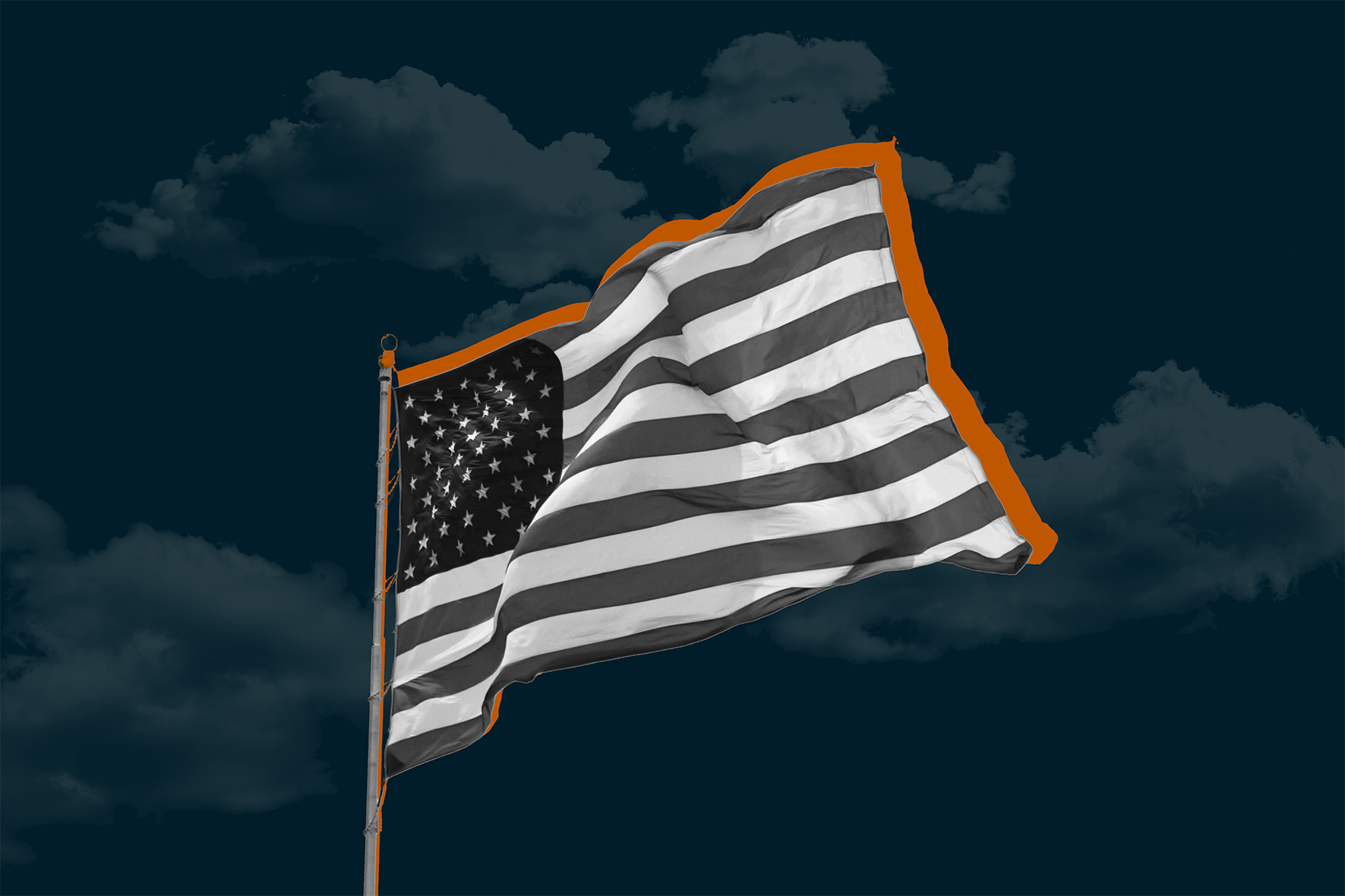
National Civitas Institute Poll: Americans are Anxious and Frustrated, Creating a Challenging Environment for Leaders
The poll reveals a deeply pessimistic American electorate, with a majority convinced the nation is on the wrong track.
.webp)
Liberal Democracy Reexamined: Leo Strauss on Alexis de Tocqueville
This article explores Leo Strauss’s thoughts on Alexis de Tocqueville in his 1954 “Natural Right” course transcript.
%20(1).avif)
Long Distance Migration as a Two-Step Sorting Process: The Resettlement of Californians in Texas
Here we press the question of whether the well-documented stream of migrants relocating from California to Texas has been sufficient to alter the political complexion of the destination state.
%20(3).avif)
Who's That Knocking? A Study of the Strategic Choices Facing Large-Scale Grassroots Canvassing Efforts
Although there is a consensus that personalized forms of campaign outreach are more likely to be effective at either mobilizing or even persuading voters, there remains uncertainty about how campaigns should implement get-out-the-vote (GOTV) programs, especially at a truly expansive scale.

There's a Perception Gap With the U.S. Economy
As we approach another election cycle, it’s worth asking: what’s real, what’s political theater, and what does it all mean if Democrats regain control of the House?

International Law Is Holding Democracies Back
The United States should use this moment to argue for a different approach to the rules of war.
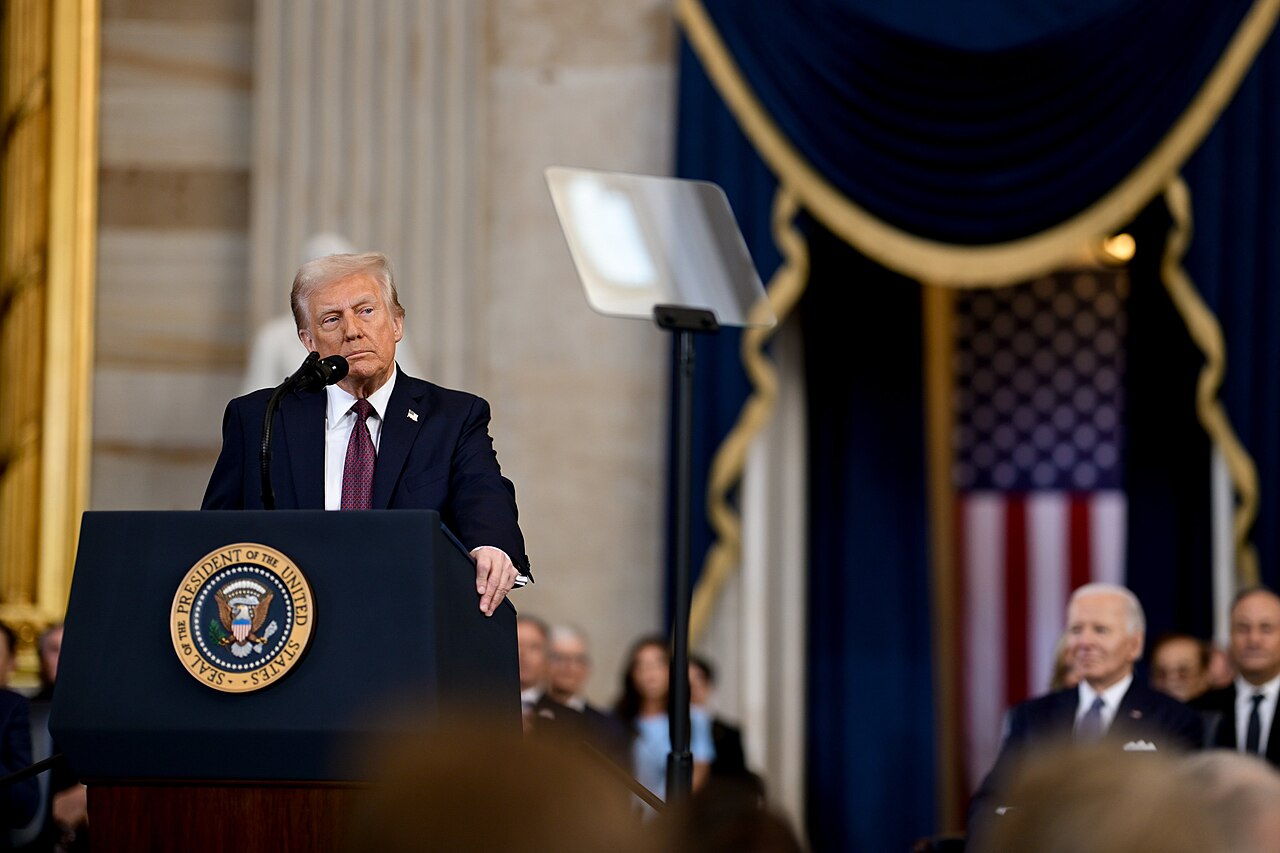
Trump purged America’s Leftist toxins. Now hubris will be his downfall
From ending DEI madness and net zero to securing the border, he’ll leave the US stronger. But his excesses are inciting a Left-wing backlash

California’s wealth tax tests the limits of progressive politics
Until the country finds a way to convince the average American that extreme wealth does not come at their expense, both the oligarchs and the heavily Democratic professional classes risk experiencing serious tax raids unseen for decades.
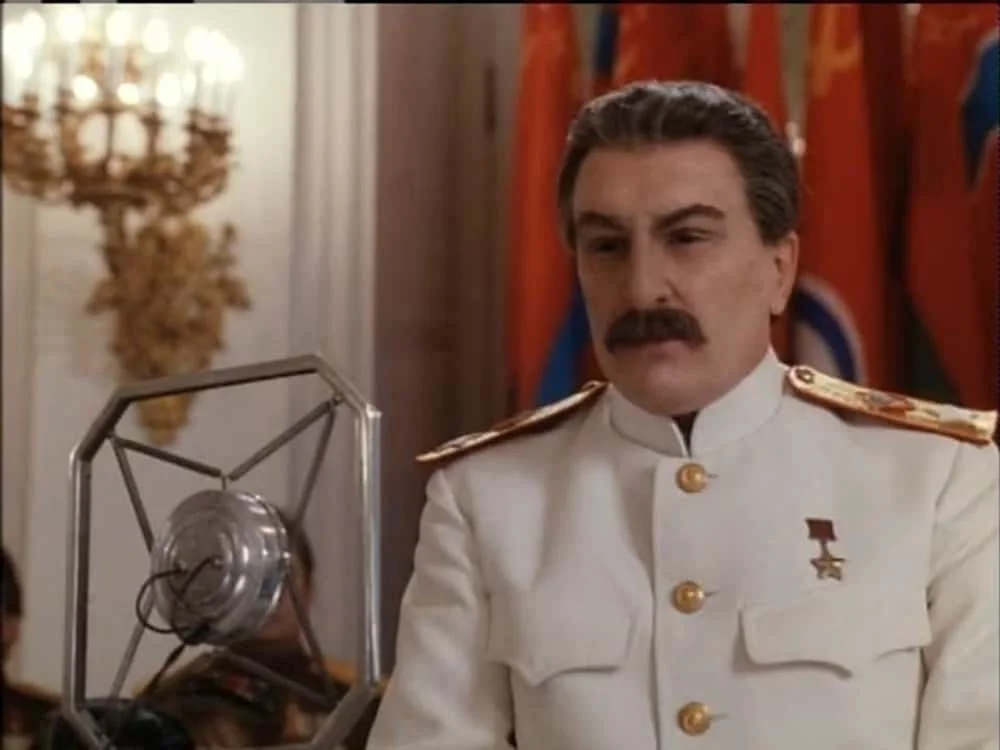
When Duvall Played Stalin
It’s strange to compliment an actor for impersonating a tyrant, but it is an act of courage.

When Vanity Leads to Impropriety
A president should simply not be allowed to name anything after himself without checks from Congress or an independent commission.








